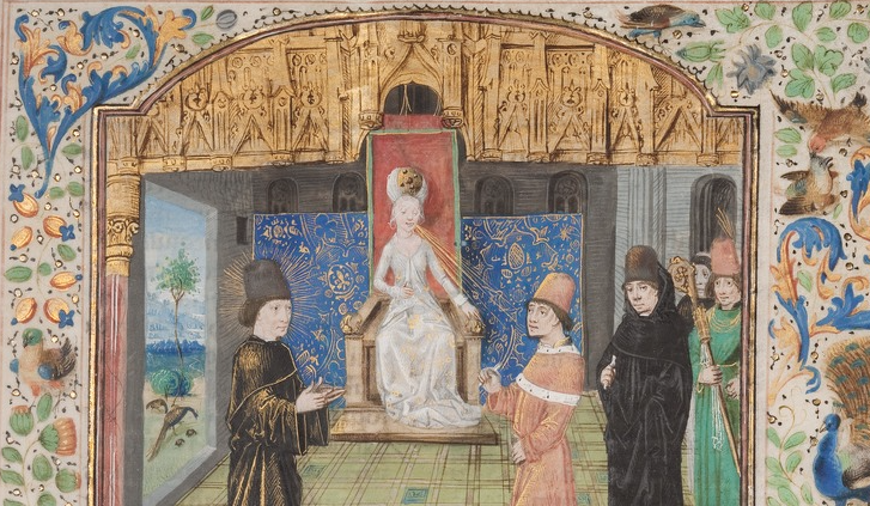CPS Lecture: Elizabeth Bearden
Title: “Descending the Mountain: Crip Authority and the Art of Consolation in the Renaissance”
Abstract: This talk comes from the first chapter of my third monograph, “Crip Authority: Disability and the Art of Consolation in the Renaissance,” which is under contract with U of Michigan P. This project brings to light premodern disability narratives, or first-person narrative accounts of the lived experience of disability. It considers how early modern writers with disabilities draw on the ancient genre of consolation—texts that articulate advantages in adversities including mental and physical disability—to enhance their writerly authority. The talk will explore consolatory works by Francesco Petrarca (Petrarch), who experiences acedia, a kind of world-weary depression he relates back to the Stoical concept of aegritudo or mental disability. He consoles himself and later generations in his autobiographical work Secretum (c. 1353), and in his book of consolation, De remediis fortunae utriusque (c. 1366), which advises how to handle disabilities as varied as deafness, blindness, war wounds, madness, and chronic pain.
Bio: Professor Bearden is a scholar and teacher of early modern literature and disability studies with training in Comparative Literature, Classics, the History of Rhetoric, and Visual Culture Studies. Her first monograph, The Emblematics of the Self: Ekphrasis and Identity in Renaissance Imitations of Greek Romance, was published by U of Toronto P in 2012. Her second monograph, Monstrous Kinds: Body, Space, and Narrative in Renaissance Representations of Disability, was published by the University of Michigan Press in 2019 and won the Tobin Siebers Prize for Disability Studies in the Humanities. She has published articles in PMLA (twice), The Journal for Early Modern Cultural Studies, Ancient Narrative Supplementum, Arizona Journal of Hispanic Cultural Studies, and E-Humanities/Cervantes. Additionally, she directed a Digital Humanities project on Philip Sidney’s funeral, which appeared in a Folger Shakespeare Library exhibition in Washington, DC. She has been invited to speak at national and international conferences and has received grants from NYU, the University of Maryland, the Folger Shakespeare Library, the University of Wisconsin–Madison, the William Andrews Clark Memorial Library, and the Institute for Advanced Study in Princeton, where she is in residence this academic year.
This event is entirely online. Click the registration link above to register in advance for the Zoom Webinar.
Cosponsored by the Uncommon Bodies Workshop and the Department of English.
